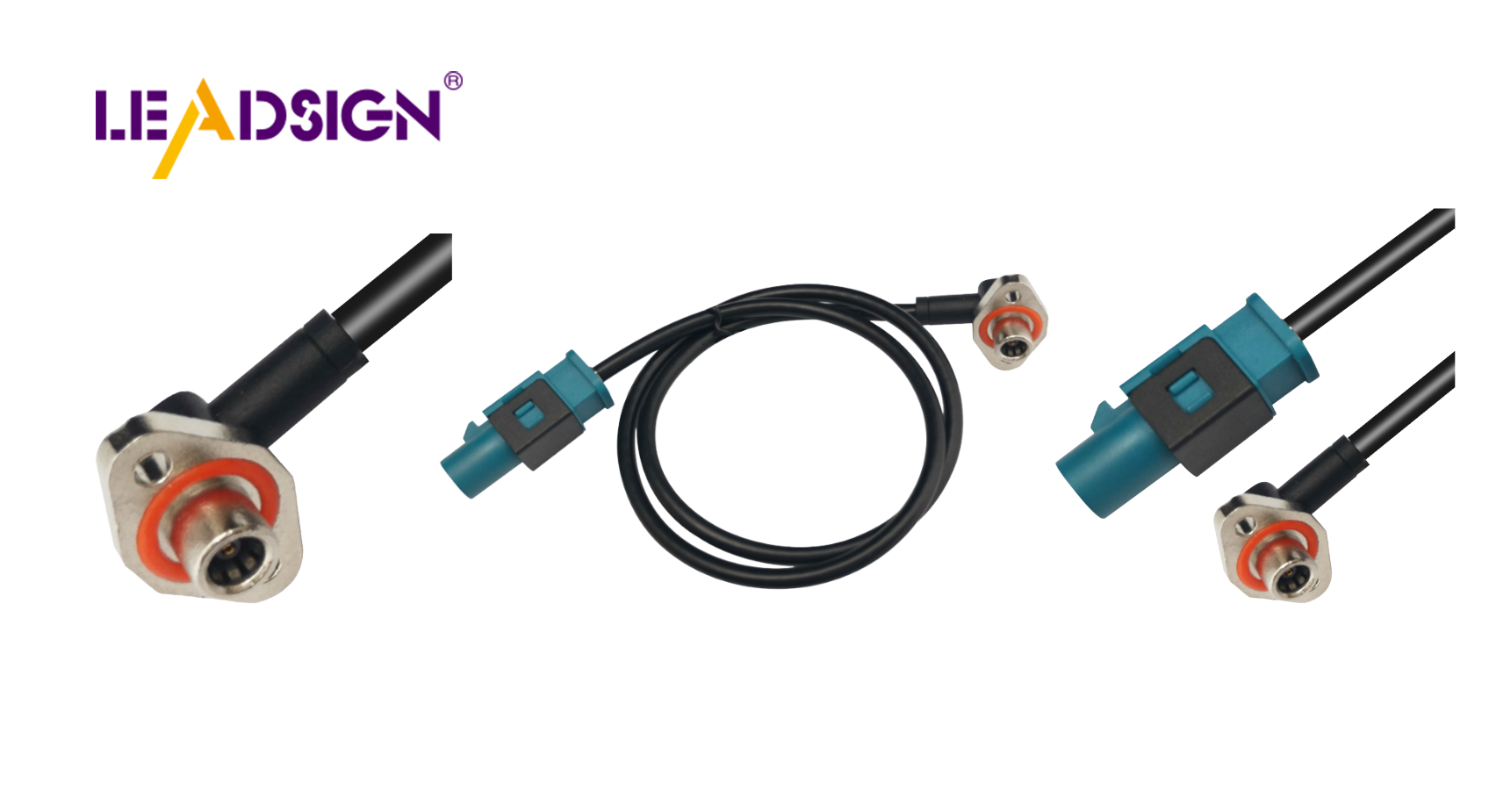Car Wire Connector Types: What is Rigid Coax?

Rigid coax cables are strong and solid. They lose little signal and block interference well. These cables have a solid center wire, an insulator, an outer conductor, and a cover. Their tough build is great for high-frequency uses in cars. In vehicles, they help with communication and signals. They support GPS, radio antennas, and car networks. Their strength makes them very important in today's car tech.
Learning About Rigid Coaxial Cables
Parts and Design
Rigid coax cables are strong and last long. They have important parts:
Inner Wire
The inner wire is the cable's heart. It's usually a solid metal, like copper. It carries signals well by reducing resistance and signal loss.
Insulating Layer
Around the inner wire, the insulating layer keeps space between wires. Made from air or foam, it stops wires from touching each other. This keeps signals stable.
Outer Shield
The outer shield is a metal tube or braid. It blocks outside noise, keeping signals clear and strong. It's key for high-frequency uses in cars.
Covering Layer
The covering layer wraps the cable for extra safety. It protects against damage, water, and heat changes. This makes it tough for car environments.
Special Features
Rigid coax cables are special because of their features.
Toughness and Strength
These cables are known for being tough and strong. They handle rough conditions without losing performance, perfect for high-power systems needing reliability.
Signal Clarity
Signal clarity is a big deal with these cables. They stop signal loss and block interference well, keeping signals clear over long distances. They're used where reliable signals matter most, like in TV stations or medical tools.
Types of Rigid Coaxial Cables
Semi-Rigid Coaxial Cables
Semi-rigid coax cables are both bendable and strong. They have a hard outer layer that stops interference. These cables fit in small spaces but work well. Their design helps them fit tight spots, perfect for cars with little room.
Hardline Coaxial Cables
Hardline coax cables are tough and work great. They have a thick outside made of copper or aluminum. This keeps signals strong over long distances. Used in high-power jobs, they send signals from radios to antennas. In cars, they last long and keep signals clear even when it's rough.
Applications in Automotive Contexts
Use in Car Antennas
Car antennas use rigid coax cables to send and get signals well. The cables' good shielding keeps radio and GPS signals clear, even with lots of noise around. Comparative Data: For example, RG58 cables are liked for their low signal loss over long distances, making them good for car antennas needing steady signals.
Role in Vehicle Communication Systems
Vehicle systems need rigid coax cables for smooth connections. These cables help send data between parts like music systems and maps. Their toughness keeps signals clear, even when driving is hard. In big vehicles like RVs, RG174 cables are used because they handle long runs without losing signal strength.
Connectors for Rigid Coaxial Cables
Common Connector Types
BNC Connectors
BNC connectors are easy to connect and disconnect. They have a special lock that keeps them secure. These connectors work well with low-frequency signals. You often find them in video and RF uses. Their design makes them simple to install or remove. This is why they are popular in cars where you need to connect and disconnect often.
N-Type Connectors
N-Type connectors work great for high-frequency signals. They give a strong connection with little signal loss. This makes them good for tough places like car systems. Their screw-on design keeps the connection tight and stable, which is important for clear signals in cars.
Relevance to Car Wire Connectors
Compatibility Considerations
Choosing the right connector is important for car cables. The connector must fit the cable and equipment, like antennas or radios. Expert Testimony:
"Connectors matter, so think about how to install them right on cables. Does it fit your antenna/radio, or do you need adapters?"
This shows why it's key to make sure the connector fits well to avoid losing signal or needing extra parts.
Installation Tips
Installing connectors correctly is very important. Here are some tips:
Check Compatibility: Make sure the connector fits the cable type and equipment.
Follow Manufacturer Guidelines: Follow instructions from makers to avoid damage.
Secure Connections: Ensure all connections are tight to stop signal loss.
Consider Professional Help: If unsure, hire a pro for proper installation.
By doing these things, users can make sure their rigid coaxial cables work well in cars.
Rigid coax cables are important in car tech. They are strong and keep signals clear. They help with GPS and radio in cars. When picking cables, think about power needs and the environment.
Experts say, "Picking the right cable is tricky." Focus on what you need early on.
Look at different connectors for special jobs. By knowing these parts, users can make sure their car systems work well.
See Also
Why FAKRA Coaxial Cables Matter in Automotive Systems
Harnessing the Strength of FAKRA Coaxial Connectors
Exploring the Flexibility and Advantages of FAKRA Connectors

